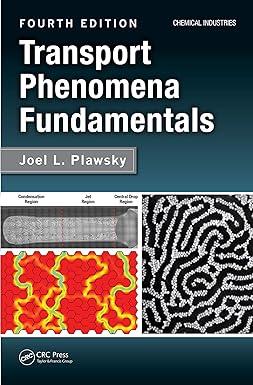As a biochemical engineer you are evaluating a drug delivery system for an artificial protein to combat
Question:
As a biochemical engineer you are evaluating a drug delivery system for an artificial protein to combat Alzheimer's. The protein is very large (200,000 molecular weight) and bulky and is sensitive to the stress level placed upon it (if it irreversibly elongates, it is of no therapeutic value). Laboratory measurements indicate that the yield stress for the protein is \(100,000 \mathrm{~N} / \mathrm{m}^{2}\). The company claims that they are delivering \(0.016 \mathrm{moles} / \mathrm{hr}\) of active protein with no more than \(5 \%\) of the protein inactive. The concentration of protein in the solution is \(1 \mathrm{moles} / \mathrm{m}^{3}\) and the physical properties of the solution are essentially that of water with the viscosity being three times that of water. The pump is peristaltic and so squeezes the fluid to pump it through the catheter tubing. The pump supplies the equivalent of \(3 \mathrm{~atm}\) pressure over a length of \(0.1 \mathrm{~mm}\) and delivers the protein through a \(1.6 \mathrm{~mm}\) diameter catheter tube. You may assume that the pump squeezes the fluid through an opening of \(0.4 \mathrm{~mm}\). The pressure drop through the rest of the \(5 \mathrm{~m}\) long tubing is negligible. Are the claims of the company accurate? How much denatured protein do they actually deliver?
Step by Step Answer:






